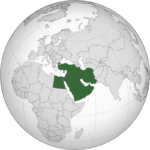Federal Reserve Chair Jay Powell’s perspective on the conflict’s economic effects
- Federal Reserve Chair Jay Powell believes the conflict in the Middle East is not likely to have significant economic effects
- The conflicts in the Middle East remain potential threats to Western investors’ plans, not realized costs
- Mitigating factors such as decreased dependence on oil and strategic reserves help minimize the economic impact of the conflict
- The chances of a full-scale escalation of the conflict in the Middle East are relatively small
- Social conflict and rising costs of necessities pose economic risks globally
Federal Reserve Chair Jay Powell believes that the conflict in the Middle East is not likely to have significant economic effects. While the conflicts in the region may seem alarming, they remain potential threats to Western investors’ plans rather than realized costs. Mitigating factors such as decreased dependence on oil and the establishment of strategic reserves help minimize the economic impact of the conflict. The chances of a full-scale escalation of the conflict are relatively small. However, rising social conflict and the increasing cost of necessities pose economic risks globally. It is important for investors to focus on the fundamentals and not catastrophize the situation.
Factuality Level: 7
Factuality Justification: The article provides a balanced analysis of the potential economic effects of the conflict in the Middle East. It acknowledges the risks and hypothetical scenarios but also highlights mitigating factors that make a significant economic impact less likely. The article includes expert opinions and references to support its claims.
Noise Level: 4
Noise Justification: The article provides some analysis of the potential economic effects of the conflict in the Middle East, but it also includes some irrelevant information and speculative scenarios. It lacks scientific rigor and intellectual honesty in some parts and dives into unrelated territories, such as social unrest and global economic repercussions. Overall, the article contains a mix of relevant and irrelevant information, making it moderately noisy.
Financial Relevance: No
Financial Markets Impacted: No
Presence Of Extreme Event: No
Nature Of Extreme Event: No
Impact Rating Of The Extreme Event: No
Rating Justification: The article discusses the potential economic effects of the conflict in the Middle East, particularly between Israel and Hamas. However, it concludes that the conflict is not currently on track to have significant economic effects. Therefore, there is no financial relevance or presence of an extreme event in this article.
Public Companies: Federal Reserve (N/A), Hamas (N/A), World Bank (N/A), Allianz (N/A)
Private Companies: LeBeck Institute
Key People: Jay Powell (Federal Reserve Chair), Michael Horowitz (Head of Intelligence at LeBeck Institute), Mohammad Ayatollahi Tabaar (Iran Scholar)
 www.marketwatch.com
www.marketwatch.com 





